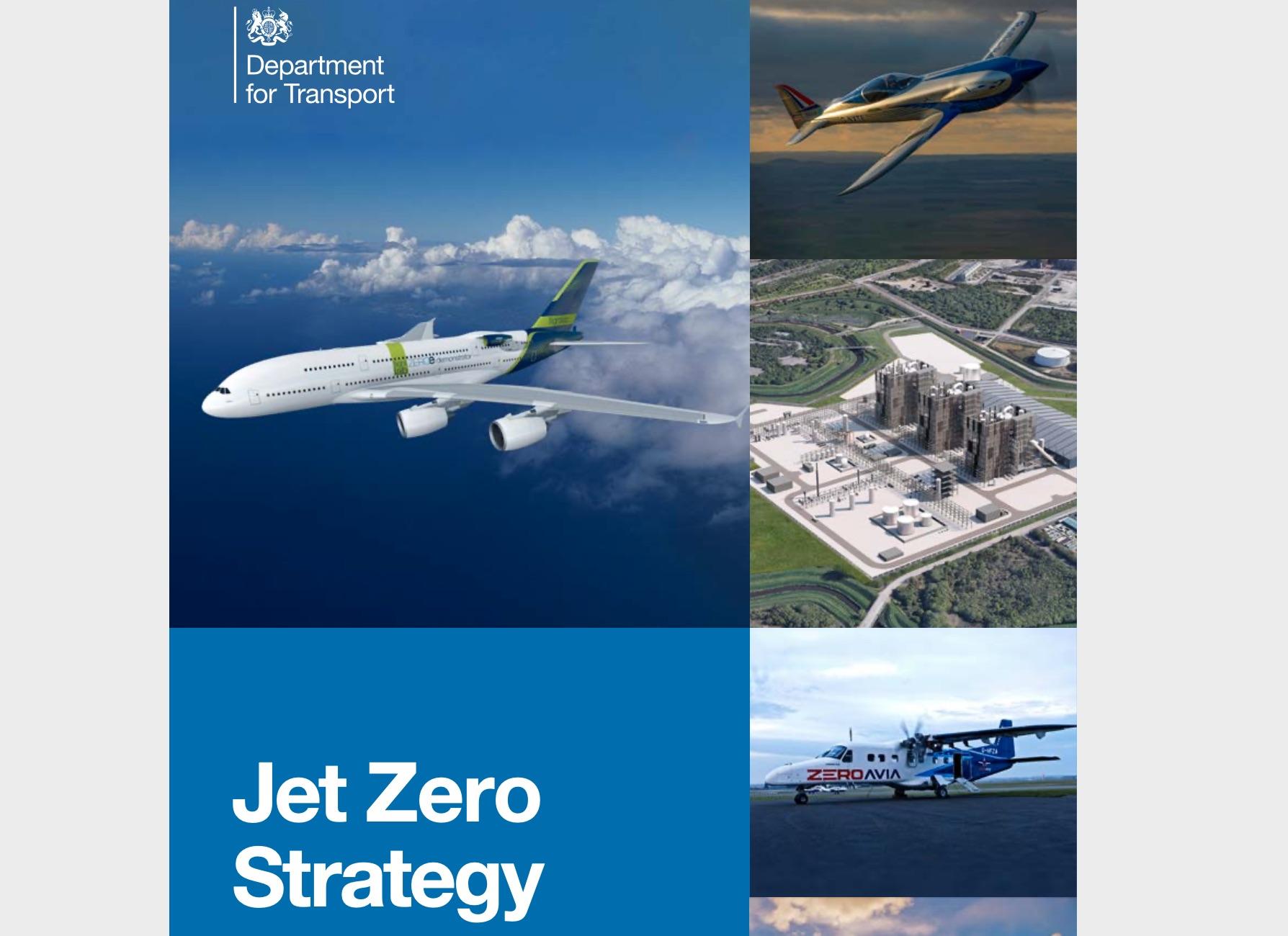
FARNBOROUGH—The UK government's Jet Zero Strategy—described by British Transport Minister Grant Shapps as "literally Britain's pitch to get to net-zero aviation”—has been published.
The 83-page document sets out a timetable of aspirations that will help the UK become a zero-carbon aviation nation by 2050, with funding pledges attached to some of the nearer-term targets.
Speaking to ShowNews following the launch of the strategy, and minutes after the highest temperature ever recorded in the UK of 40.2C (104.4F) was reached at Heathrow some 20 mi. away, Shapps focused on elements of the plan that could be achievable today.
While the strategy is geared toward an aspiration for zero-emissions flight, it also acknowledges a need to reduce emissions with currently available technologies, highlighting sustainable aviation fuels (SAF) as a key ingredient. Pricing remains a barrier to SAF adoption, so the strategy includes funding for five SAF plants to help the sector gain access to a more reliable—and substantially cheaper—supply.
"It's like any market: it's expensive when you're doing a little bit of it, but you get the economies of scale," Shapps says. "You've got to get to the scale in order to reduce the costs. One of the things the strategy outlines is having five SAF factories set up in this country, and having them be created by 2025."
Public money to seed these plants will come from the new Advanced Fuels Fund, which has up to £165 million ($198 million) to spend on "capital grant funding to support first-of-a-kind commercial and demonstration plants" over three years. The plan commits to having five plants under construction by 2025. "This is not pie in the sky," Shapps said. "We bid for this—we won the money in the Spending Review—and now is our opportunity to launch it at Farnborough."
Shapps also noted that, in May, his department launched the Net Zero Transatlantic Flight Fund, a competition intended to produce rival bids to make the first net-zero flight between Europe and the U.S. Up to £1 million is available and applications closed on June 15. The competition envisions a flight by an airliner operating on pure SAF. This would still emit carbon; but Shapps says the competition also requires bidders to ensure the SAF used would be produced in a completely sustainable manner, and to demonstrate carbon-capture or other technologies during the flight to achieve net-zero status.
The strategy has already been criticized by BALPA (British Air Line Pilots Association) for devoting too little attention to non-CO2 emissions, and for relying on too many familiar faces to draft its details.
"With the same narrow clique of advice, the same CEOs who provided the chaos seen in aviation’s spring ‘recovery’ from COVID advising the government, I am not surprised there is so much missing from the Jet Zero Strategy," BALPA General Secretary Martin Chalk says in a statement. "Aspiration-heavy and action-light ‘strategies’ risk failing our industry, the economy and our society."
"I have a feeling that this might be a push by BALPA to try to get on the Jet Zero Council," Shapps says, noting that he had not read the organization's criticisms. "It wasn't some kind of closed-shop consultation: 1400 people responded, and anyone could have."

